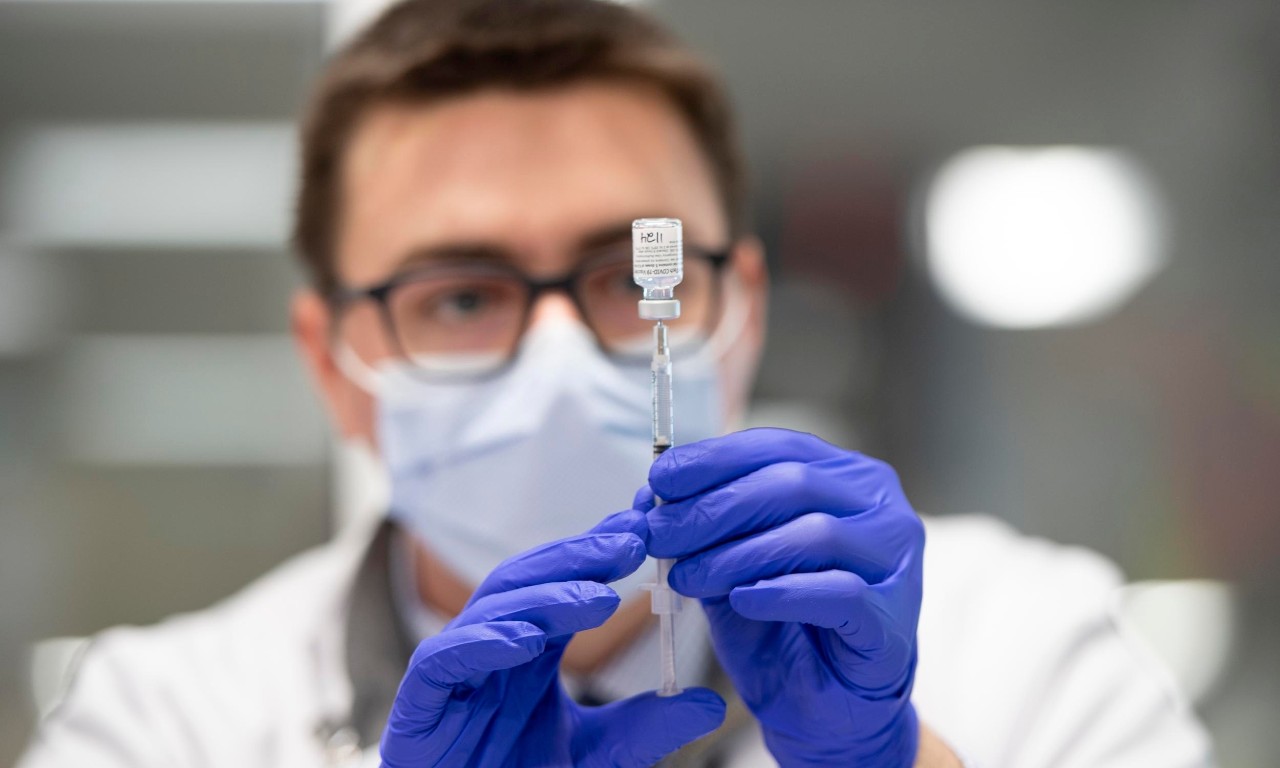
Cleveland.com: AI knows if you will get COVID-19 vaccine
UC researchers create predictive tool for vaccine hesitancy
Cleveland.com highlighted a new artificial intelligence tool developed at the University of Cincinnati that can predict with accuracy whether someone is willing to be vaccinated against COVID-19 or other diseases.
The relatively simple assessment one day could help public health officials anticipate regional spikes in disease based on vaccine hesitancy in the population.
A team led by researchers in UC's College of Engineering and Applied Science created a predictive model using an integrated system of mathematical equations describing the lawful patterns in reward and aversion judgment with machine learning.
The study demonstrates that artificial intelligence can make accurate predictions about human attitudes with surprisingly little data or reliance on expensive and time-consuming clinical assessments.
“We used a small number of variables and minimal computational resources to make predictions,” said lead author Nicole Vike, a senior research associate in UC’s College of Engineering and Applied Science.
“COVID-19 is unlikely to be the last pandemic we see in the next decades. Having a new form of AI for prediction in public health provides a valuable tool that could help prepare hospitals for predicting vaccination rates and consequential infection rates.”
The project was a collaboration between UC and Northwestern University.
Featured image at top: A UC College of Pharmacy student draws a syringe during a drive-through vaccination clinic at UC Health. Photo/Colleen Kelley/UC Marketing + Brand
More UC computer engineering in the news

UC Professor Hans Breiter is applying artificial intelligence to new applications in health and human behavior. Photo/Andrew Higley/UC Marketing + Brand
- McKnight's Senior Living: Are seniors and their caregivers going to get a COVID booster? This AI tool already knows
- India Education Diary: Artificial intelligence tool forecasts COVID-19 vaccine uptake
- Science Daily: Powerful new AI can predict people's attitudes to vaccines
Related Stories
Cleveland.com: AI knows if you will get COVID-19 vaccine
March 25, 2024
The Cleveland Plain Dealer highlights a UC tool that uses AI to predict vaccine hesitancy.
Powerful new AI can predict people's attitudes to vaccines
March 18, 2024
A powerful new tool in artificial intelligence is able to predict whether someone is willing to be vaccinated against COVID-19.
Local news highlights UC's artificial intelligence programs
May 6, 2024
UC College of Engineering and Applied Science Professor Ali Minai tells WLWT and WVXU that AI is becoming a popular subject among new students.
